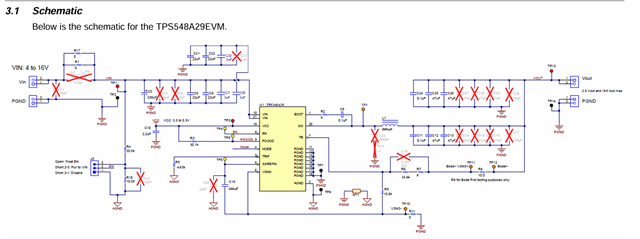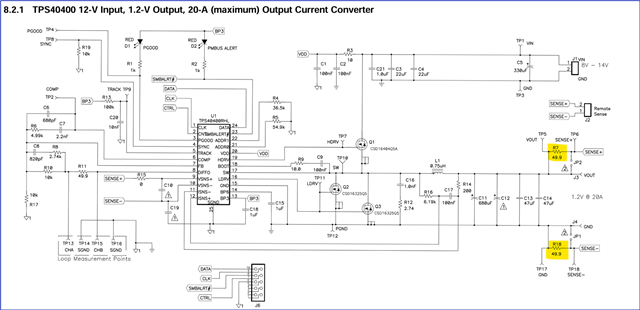Other Parts Discussed in Thread: TPS40400
Tool/software:
Hi Support
According to TPS548A29EVM use guide(https://www.ti.com/lit/ug/slvubn8/slvubn8.pdf?ts=1757324720165&ref_url=https%253A%252F%252Fwww.ti.com%252Ftool%252FTPS548A29EVM)
it says to replace R8 and R11 with 100 ohm. Could you help to explain what is the reason? and why 100 ohm?





